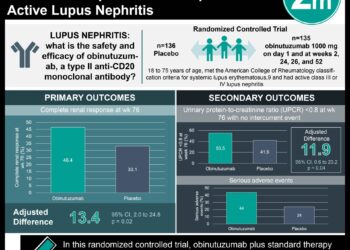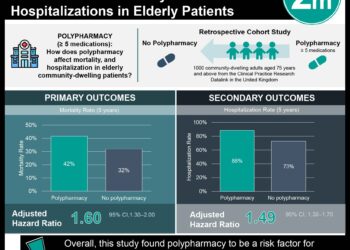Obstetric and pediatric recommendations differ for in utero pediatric consultation for maternal conditions that could impact fetal post-natal health
Image: PD
Key study points:
1. Compared to Maternal Fetal Medicine (MFM) specialists, Fetal Care Pediatric (FCP) specialists were more likely to recommend pediatric counseling for fetuses in utero in the setting of high-risk maternal conditions.
2. As pediatric specialists are becoming more involved in pre-natal care, it will be necessary to address discrepancies in specialists’ recommendations.
Primer: Traditionally, pediatric care begins at birth, while pregnancy care is centered maternally-centered and managed by obstetric specialists. However, with recent advances in prenatal imaging, better understanding of fetal physiology, and developments in the fields of prenatal diagnosis and fetal intervention, pediatric specialists are becoming more involved in pre-natal care. This creates an overlap in the domains of MFM and FCP specialists and may result in an ethical dilemma if clinical opinions differ (e.g. who’s health and autonomy is most important—that of the mother or that of the fetus?)
This study compared opinions of the two specialists in such scenarios.
Background reading:
1. Maternal-Fetal Intervention and Fetal Care Centers [Pediatrics]
2. Up-to-Date: Overview of Illicit Drug use in Pregnant Women
3. Up-to-Date: Infants of Mothers with Substance Abuse
4. Up-to-Date: Pregnancy Risks in Women with Type 1 and Type 2 Diabetes Mellitus
5. From the AAP: The Prenatal Visit [Pediatrics]
This [cross-sectional] study used mail surveys to assess the opinions of over 400 MFM and FCP specialists across 21 states. Specialists were asked about their recommendations in the setting of four maternal conditions: maternal alcohol use, cocaine use, anti-epileptic use and diabetes.
Across maternal conditions assessed, FCPs were more likely than MFMs to believe that pediatric specialist counseling should occur before a decision regarding continuation of the pregnancy was made (all p <0.01). Compared to FCPs, MFMs were more than twice as likely to consider pediatric consultation unnecessary for any maternal condition. In the setting of maternal refusal to enter a treatment program for cocaine addiction, maternal refusal to take anti-retrovirals to prevent HIV transmission or maternal refusal of percutaneous transfusion for fetal anemia, FCPs were significantly more likely to believe it appropriate to seek court intervention than MFMs (all p <0.01).
In sum: Compared to obstetric specialists, pediatric specialists were more likely to recommend pediatric consult for maternal conditions that could affect the postnatal child’s health. Moreover, it is one of the first studies to evaluate provider perception of the appropriateness of court intervention in the setting of maternal refusal of treatment.
Click to read the study in the current issue of Pediatrics
By [MS] and [LH]
© 2012 2minutemedicine.com. All rights reserved. No works may be reproduced without written consent from 2minutemedicine.com. DISCLAIMER: Posts are not medical advice and are not intended as such. Please see a healthcare professional if you seek medical advice.





